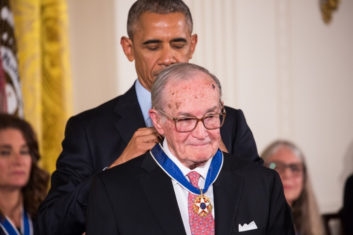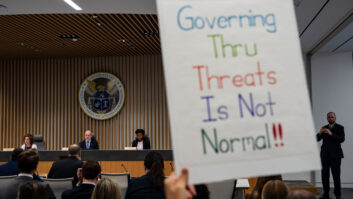
Nine former FCC chairs are expressing support for reinstating a tax certificate program intended to encourage investment in broadcast ownership by women and people of color.
The National Association of Broadcasters distributed a copy of their letter to the media, highlighting the support of these former commission chairs. They include seven Democrats and two Republicans.
The letter supports the Expanding Broadcast Opportunities Act of 2021 introduced in the House and the Broadcast VOICES Act in the Senate.
[Related: “NAB Gives Thumbs Up to Minority Tax Bills”]

A Diversity Tax Certificate Program would give a tax incentive to those who sold a majority interest in a radio or TV station to underrepresented broadcasters.
The letter was signed by Newton Minow (1961–1963), Richard Wiley (1974–1977), Reed Hundt (1993–1997), William Kennard (1997–2001), Michael Powell (2001–2005), Michael Copps (2009), Julius Genachowski (2009–2013), Mignon Clyburn (2013) and Tom Wheeler (2013–2017).
“In each of our administrations, one of the most critical goals was advancing diversity and competition in broadcasting,” the former FCC chairs wrote, noting that a similar program was in place from 1978 to 1995.

“The greatest barrier to diversity is access to capital, which is why the Tax Certificate Policy was so important. It provided that a licensee who sold his or her station to a minority entrepreneur could defer payment of capital gains taxes upon reinvestment in comparable property. This relief benefitted buyers, sellers, and consumers.”
They called the former policy “highly successful” because it helped minority ownership in broadcast TV and radio quintuple. “But in the years since the repeal of the policy, the frequency with which broadcast properties have been sold to minorities has fallen dramatically.”







